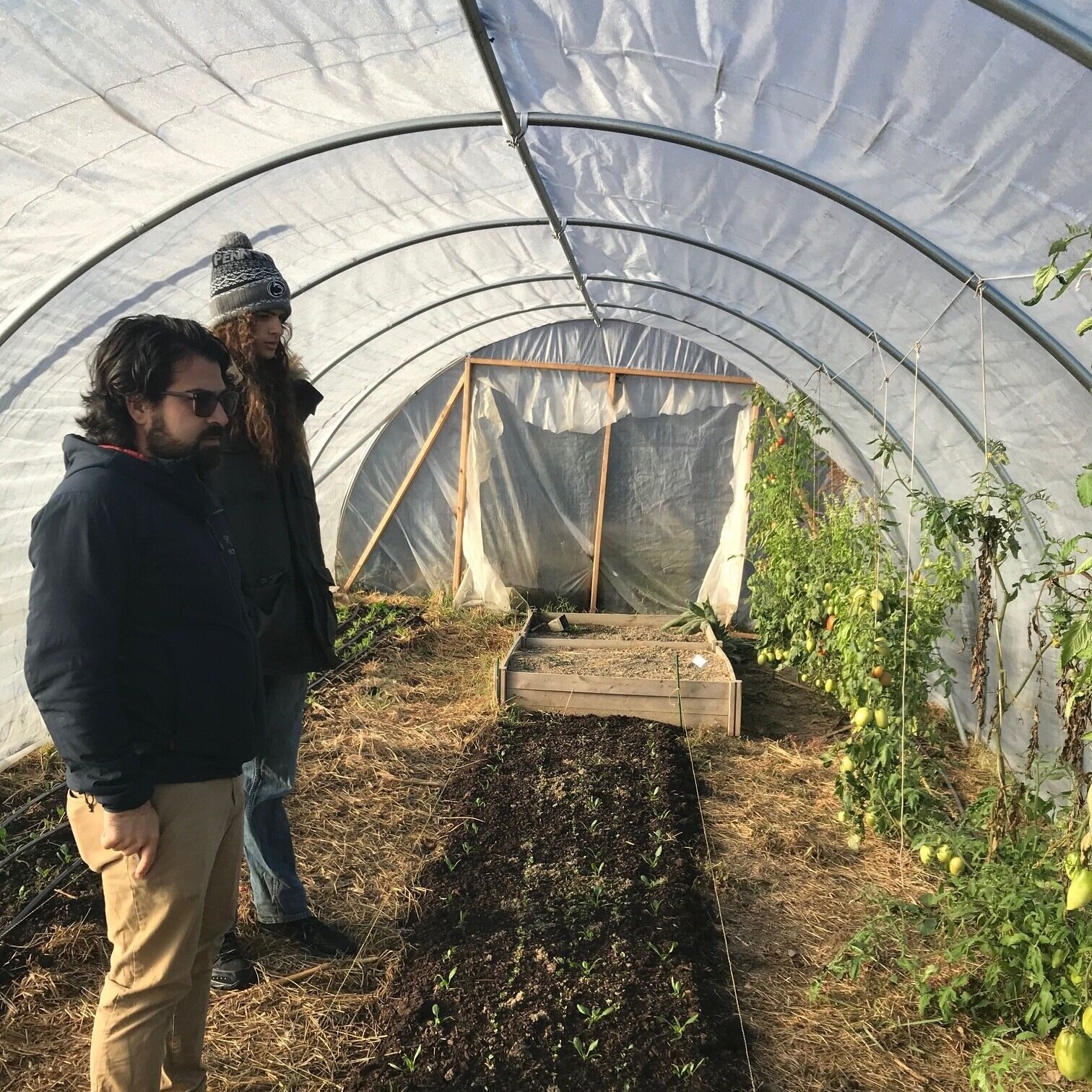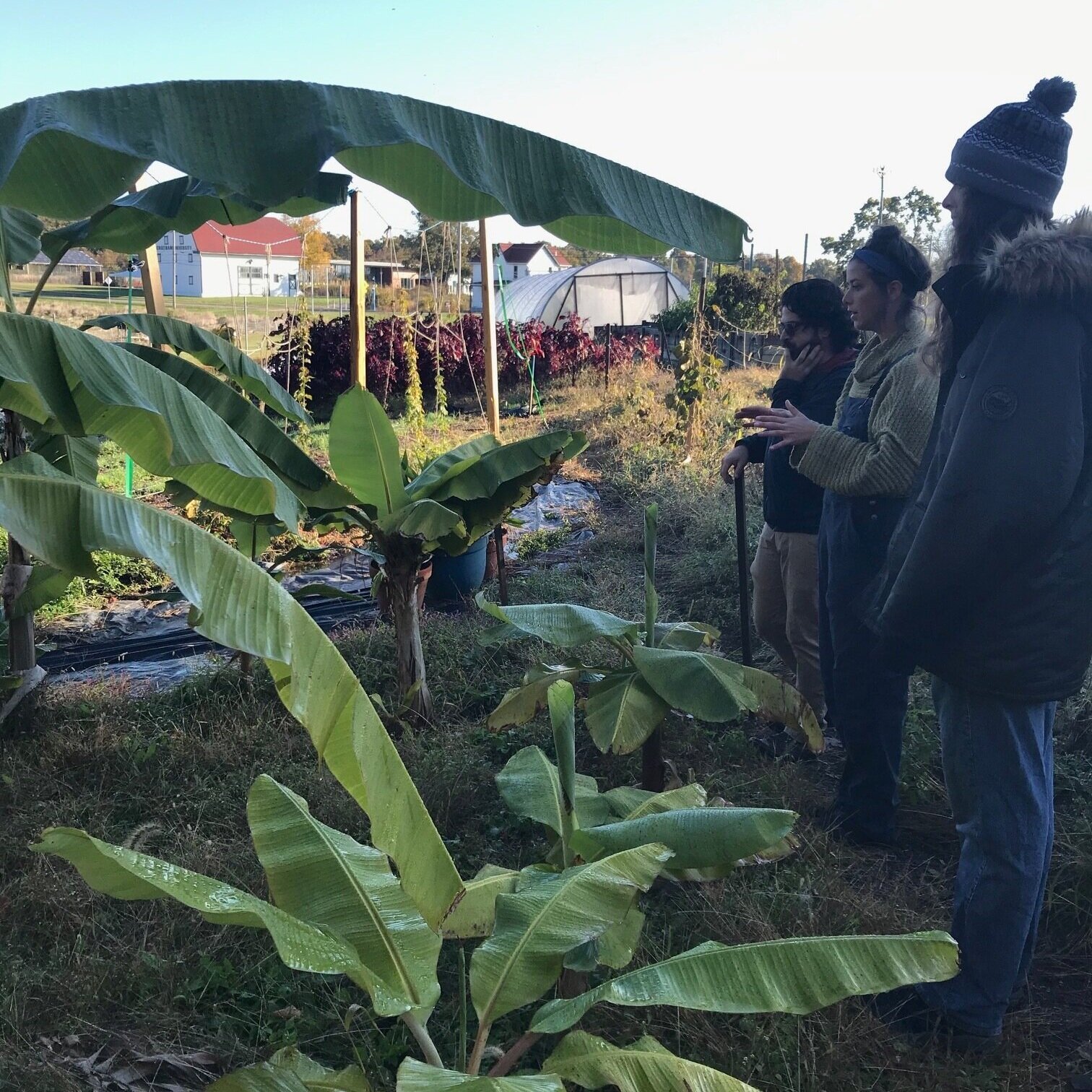A morning in the Agroecology Demonstration Garden
A vital—vital—aspect of the Falk School of Sustainability & Environment is the camaraderie between students and faculty. This camaraderie was almost tangible one day when Assistant Professor Christopher Murakami met with a few of his work-study students to spend the morning tending to the Agroecology Demonstration Garden (ADG).
The ADG is two-thirds of an acre of—well, let’s let one of the work-study students, Master of Food Studies student Liz Metzler ’21, speak to it: “I’ve worked in so many gardens and never had anyone be like ‘this is your garden; what do you want to do?’”
It’s a chill October morning, the goats are bleating, and Murakami is standing in a hoop house discussing hot peppers with work-study student and Master of Sustainability major Nick Leo ’22; specifically, Murakami’s experiences using them in his hot sauce the previous weekend.
Murakami and Leo are surrounded by peppers, “up to 20 varieties, with an overrepresentation of some of the hottest peppers in the world,” laughs Murakami. One of the projects that they’ll work on today is harvesting some of the peppers, and repurposing the buckets for “banana pups”—offshoots that grow from the base of the banana plant.
Later, Leo and Metzler will dig up a banana tree, which takes less time than you might imagine, and repot it to move it indoors for the winter. It’s an experiment, like everything else in the garden. But for now, Leo and Murakami go through the peppers, deciding which will stay and which will find other fates. “I like the Thai chiles,” says Leo, and they’re set aside.
“Nick is the pepper guy,” says Metzler. “He helped come up with the planting schemes.”
“I like to open it up for students to grow identity-affirming foods,” says Murakami. “We work to get students connected to projects here that resonate with them.”
Suddenly, there’s a small commotion: Goats on the loose! “Do they need help down there?” Murakami calls out to Hannah Hostetter, a student in the dual-degree MAFS + MBA program. Hostetter pauses and wipes her brow. “We’ll holler!” she hollers.
Murakami, Leo, and Metzler head into another hoop house, this one growing tomatoes. “We’re growing plum regal, San Marzano, and German Lunchbox tomatoes. These are for an undergraduate sustainable production course in which they’re creating an Eden Hall brand of pizza,” says Murakami. These tomatoes will be harvested today, too.
As a rule, the team prepares and eats lunch together after their work session, with food harvested from the garden. Today, among the bounty, will be squash and what Murakami and his team call “Rittle beans.”
Here’s the story: Chad Rittle, an associate professor in Chatham’s nursing program, was out at Eden Hall Campus observing Murakami’s class when Rittle mentioned some heirloom beans that his family had brought over from the old country, which he had kept frozen for a few years. “I said, ‘hey, we can help with that,’” says Murakami, and help they did: Murakami’s team planted and harvested the beans. The pods resemble those of large green beans, but the beans themselves are beautiful—marbled brown and white, a little like cranberry beans.
“I know this means a lot to him,” says Murakami.
The Falk School of Sustainability & Environment offers graduate and undergraduate programs in sustainability and in food studies, as well as dual-degree programs that combine sustainability and food studies with an MBA.






